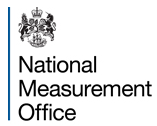
Deregulation is the process of removing or reducing state regulations, typically in the economic sphere. It is the repeal of governmental regulation of the economy. It became common in advanced industrial economies in the 1970s and 1980s, as a result of new trends in economic thinking about the inefficiencies of government regulation, and the risk that regulatory agencies would be controlled by the regulated industry to its benefit, and thereby hurt consumers and the wider economy. Economic regulations were promoted during the Gilded Age, in which progressive reforms were claimed as necessary to limit externalities like corporate abuse, unsafe child labor, monopolization, pollution, and to mitigate boom and bust cycles. Around the late 1970s, such reforms were deemed burdensome on economic growth and many politicians espousing neoliberalism started promoting deregulation.

The Health and Safety Executive (HSE) is a UK government agency responsible for the encouragement, regulation and enforcement of workplace health, safety and welfare, and for research into occupational risks in Great Britain. It is a non-departmental public body of the United Kingdom with its headquarters in Bootle, England. In Northern Ireland, these duties lie with the Health and Safety Executive for Northern Ireland. The HSE was created by the Health and Safety at Work etc. Act 1974, and has since absorbed earlier regulatory bodies such as the Factory Inspectorate and the Railway Inspectorate though the Railway Inspectorate was transferred to the Office of Rail and Road in April 2006. The HSE is sponsored by the Department for Work and Pensions. As part of its work, HSE investigates industrial accidents, small and large, including major incidents such as the explosion and fire at Buncefield in 2005. Though it formerly reported to the Health and Safety Commission, on 1 April 2008, the two bodies merged.

The British Bankers' Association (BBA) was a trade association for the UK banking and financial services sector. From 1 July 2017, it was merged into UK Finance.

The Chartered Trading Standards Institute (CTSI) is a professional association which represents and trains trading standards professionals working in local authorities, business and consumer sectors and in central government in the UK and overseas.

Vehicle and Operator Services Agency (VOSA) was an executive agency granted trading fund status in the United Kingdom sponsored by the Department for Transport of the United Kingdom Government.
The Shareholder Executive (ShEx) was a body within the UK Government responsible for managing the government's financial interest in a range of state-owned businesses for commercial rather than political interests. It was part of the Department for Business, Innovation and Skills and staffed by civil servants, many of whom were corporate finance professionals with private sector experience. It was led by Mark Russell as Chief Executive at the time of its closure.
The Better Regulation Commission was a non-departmental public body of the British government, independent of any government department but under the oversight of Department for Business, Enterprise and Regulatory Reform.
A regulatory impact analysis or regulatory impact assessment (RIA) is a document created before a new government regulation is introduced. RIAs are produced in many countries, although their scope, content, role and influence on policy making vary.

The ease of doing business index was an index created jointly by Simeon Djankov, Michael Klein, and Caralee McLiesh, three leading economists at the World Bank Group, following the release of World Development Report 2002. The academic research for the report was done jointly with professors Edward Glaeser, Oliver Hart, and Andrei Shleifer. Though the first report was authored by Djankov, Klein, and McLiesh, and they continue to be listed as "founders" of the report, some sources attribute the genesis of the idea to Djankov and Gerhard Pohl. Higher rankings indicated better, usually simpler, regulations for businesses and stronger protections of property rights. Empirical research funded by the World Bank to justify their work show that the economic growth effect of improving these regulations is strong. Other researchers find that the distance-to-frontier measure introduced in 2016 after a decision of the World Bank board is not correlated with subsequent economic growth or investment.

The National Measurement and Regulation Office (NMRO) was an executive agency of the UK Government's Department for Business, Innovation and Skills (BIS). Its function were to provide a measurement infrastructure which supports innovation, facilitates fair competition, promotes international trade and protects consumers and the environment.
The Code for Sustainable Homes was an environmental assessment method for rating and certifying the performance of new homes in United Kingdom. First introduced in 2006, it is a national standard for use in the design and construction of new homes with a view to encouraging continuous improvement in sustainable home building. In 2015 the Government in England withdrew it, consolidating some standards into Building Regulations.

The Department for Business, Enterprise and Regulatory Reform (BERR) was a United Kingdom government department. The department was created on 28 June 2007 on the disbanding of the Department of Trade and Industry (DTI), and was itself disbanded on 6 June 2009 on the creation of the Department for Business, Innovation and Skills.

The Regulatory Enforcement and Sanctions Act 2008 is an Act of the Parliament of the United Kingdom which is designed to provide for more consistent enforcement of regulations across local authority boundaries, better co-ordination between local authorities and central government, and more effective enforcement of regulations. It also requires regulators to conform to certain principles. The Act was passed in response to the Hampton report, commissioned in the 2004 budget.

The Department for Business, Innovation and Skills (BIS) was a ministerial department of the United Kingdom Government created on 5 June 2009 by the merger of the Department for Innovation, Universities and Skills (DIUS) and the Department for Business, Enterprise and Regulatory Reform (BERR). It was disbanded on the creation of the Department for Business, Energy and Industrial Strategy on 14 July 2016.
Board of Investment (BOI) (Urdu: ہیئتِ پاکستان برائے سرمایہ کاری) is the premier investment promotion agency of Pakistan working under the administrative control of the Prime Minister’s Office and is mandated to promote and facilitate both local & foreign investment. The Board of Investment is a member of the World Association of Investment Promotion Agencies (WAIPA).
Constructing Excellence is a United Kingdom construction industry membership organisation created in 2003, the only such which draws its member organisations from across the industry supply chain, ranging from clients, through contractors and consultants, to suppliers and manufacturers of building materials and components. Constructing Excellence attempts to apply the reforms recommended in the 1994 Latham and 1998 Egan Reports, having absorbed several bodies established following those reports. In August 2016, Constructing Excellence became part of BRE, but retains its identity and core purposes.

The Competition and Markets Authority (CMA) is the competition regulator in United Kingdom. It is a non-ministerial government department in the United Kingdom, responsible for strengthening business competition and preventing and reducing anti-competitive activities. The CMA launched in shadow form on 1 October 2013 and began operating fully on 1 April 2014, when it assumed many of the functions of the previously existing Competition Commission and Office of Fair Trading, which were abolished.

Lucy Jeanne Neville-Rolfe, Baroness Neville-Rolfe is a British businesswoman and politician serving as Minister of State at the Cabinet Office since September 2022. A member of the Conservative Party, she has served in ministerial positions under prime ministers David Cameron, Theresa May, Liz Truss, and Rishi Sunak. In December 2021, she was appointed by the Secretary of State for Work and Pensions to lead the statutory review into the state pension age.

The Secretary of State for Business and Trade, is a Secretary of State in the Government of the United Kingdom, with responsibility for the Department for Business and Trade. The incumbent is a member of the Cabinet of the United Kingdom.

The Department for Business and Trade (DBT) is a department of His Majesty's Government established on 7 February 2023 after a government reshuffle, the first by prime minister Rishi Sunak. The new department absorbed the functions of the former Department for International Trade (DIT) and some of the functions of the former Department for Business, Energy, and Industrial Strategy (BEIS).













